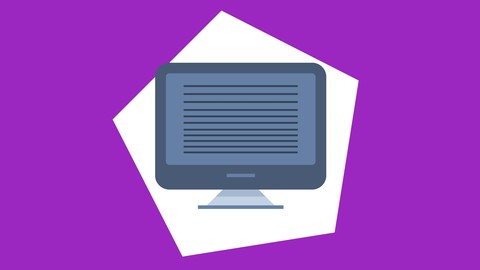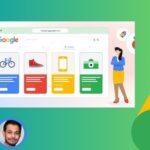
Mastering Arduino From beginners To Core Advance
Mastering Arduino From beginners To Core Advance, available at $19.99, has an average rating of 3.65, with 58 lectures, based on 67 reviews, and has 9860 subscribers.
You will learn about The students will get a complete theoritical as well as practical knowledge of microcontrollers they will get knowledge of industrial environments IDEs they will get knowledge of sensors and type of motors they will get a complee practical project knowledge and how to deelop it into realtime environment they will get a basic idea of what is a micro controller and how to run motor and sensors with PC This course is ideal for individuals who are a wide range of peoples from absolute beginners to hobbyists to expert level intellects It is particularly useful for a wide range of peoples from absolute beginners to hobbyists to expert level intellects.
Enroll now: Mastering Arduino From beginners To Core Advance
Summary
Title: Mastering Arduino From beginners To Core Advance
Price: $19.99
Average Rating: 3.65
Number of Lectures: 58
Number of Published Lectures: 58
Number of Curriculum Items: 58
Number of Published Curriculum Objects: 58
Original Price: $19.99
Quality Status: approved
Status: Live
What You Will Learn
- The students will get a complete theoritical as well as practical knowledge of microcontrollers
- they will get knowledge of industrial environments IDEs
- they will get knowledge of sensors and type of motors
- they will get a complee practical project knowledge and how to deelop it into realtime environment
- they will get a basic idea of what is a micro controller and how to run motor and sensors with PC
Who Should Attend
- a wide range of peoples from absolute beginners to hobbyists to expert level intellects
Target Audiences
- a wide range of peoples from absolute beginners to hobbyists to expert level intellects
“I want to put a ding in the universe.”
– Steve Jobs
Description�
This course is designed to keep the beginners in mind. The course will provide you with vast theoretical knowledge and practical examples of each part .there is no need to have any prior knowledge in C++ or electronics but if you have then it is a plus point. The course will deal with a large number of topics from basics to watchdog timers to I2C communication method the Arduino framework as well as how to build simple circuits that flash lights and spin motors. Following that, we continue our adventure into making noise, sensing the environment, and building a robot.
We will begin our journey by basic knowledge of arduino and micro controllers
Then we will go on basic setup processes and connections, after that we will on to running a lot of different motors. After that the sensors details and high level communication. Then the advanced topics with complete knowledge and at the end we will be going to do a complete project with the help of all the things we studied in a real time project.
Each video lecture is designed to give you one building block of knowledge. Almost every lecture is followed by a hands-on exercise where I ask you to expand on that building block or combine several previous blocks. I provide solutions to each exercise to help you learn. Additionally, most of the sections contain a project that challenges you to synthesize many of the concepts found in that section and from previous sections.
Upon completing this course, you will have the skills and knowledge needed to create fun and useful Arduino projects.
The course is broken up into a Simple Projects section, an Intermediate Projects section and an Advanced Projects section allowing you to progress to or start from any level based on how comfortable you are with Arduino.
Course overview
A lot is there to study and we will begin with the basics to beginners then we will move towards intermediate and then to advance levels.
A glimpse of the course is as follows:-
1. Introduction
2. what is arduino
3. microcontroller
4. Atmega 328 details
5. connection of Atmel 328 with arduino
6. arduino UNO and bread board wiring
7. let’s get started with programming
8. download and install software
9. about the environment
10. how to blink led (hello world)
11. arduino syntax
12. understanding variables
13. digital read and serial port
14. analog read
15. introduction to pwm
16. fade a led
17. if conditional statement
18. for loop
19. while loop
20. using array
21. difference between input and output
22. difference between digital and analog
23. multiple led
24. button input
25. analog input
26. analog output
27. liquid crystal display
28. types of motors
29. simple dc motor
30. servo motor
31. stepper motor
32. running dc motor
33. running servo motor
34. running stepper motor
35. introduction to sensors
36. types of sensors potentiometer
37. piezoelectric sensor
38. temperature sensor
39. PIR sensor
40. serial communication
41. serial begin details
42. serial write
43. serial read
44. other IDE for programming
45. Atmel studio
46. wiring ide
47. i2c communication and processing
48. spi interface
49. wireless communication using RF remote
50. RFID card reading
51. watchdog timer
52. automatic gate opener : a real time project
53. using multiple sensors
54. multiple sensor programming
55. using them simultaneously
56. running relay with rf remote
57. running them with RFID card
58. conclusion
what you will get
• each course video
• course complete PDF version to download
• complete Codes to download and github link
• full explanations at any time by answering questions
Course Curriculum
Chapter 1: Introduction
Lecture 1: Introduction
Chapter 2: the basic foundation
Lecture 1: what is arduino
Lecture 2: what is a microcontroller
Lecture 3: Atmel Atmega 328 details
Chapter 3: Arduino and Integrated Development Environment
Lecture 1: About The Environment
Lecture 2: Arduino Software For The First Timers
Lecture 3: Basic Of Arduino Programming
Lecture 4: First Program Theory
Chapter 4: Programming For The Beginnners
Lecture 1: Arduino Syntax
Lecture 2: Syntax Elements
Lecture 3: DigitalRead and Serial Port
Lecture 4: Introduction To PWM
Lecture 5: Fade A LED
Lecture 6: IF Conditional Statement
Lecture 7: For Loop
Lecture 8: While Loop
Lecture 9: Using Arrays
Chapter 5: Physical Computing Basics
Lecture 1: Difference Between Input And Output
Lecture 2: Difference Between Digital And Analog
Lecture 3: Multiple LED
Lecture 4: Button Input And LED
Lecture 5: Analog Input
Lecture 6: Liquid Crystal Display
Chapter 6: Introduction To Motor
Lecture 1: Types Of Motors
Lecture 2: Simple DC Motor
Lecture 3: Servo Motor
Lecture 4: Continious Servo Motor
Lecture 5: Stepper Motor
Lecture 6: Running a DC Motor
Lecture 7: Running a Servo Motor
Chapter 7: Introduction To Sensors
Lecture 1: Introduction To Sensors
Lecture 2: Sensor Details
Lecture 3: Potentiometer
Lecture 4: Peizoelectric Sensor
Lecture 5: Temperature Sensor
Lecture 6: Passive Infrared Sensor
Chapter 8: Serial Communication Basics
Lecture 1: Serial Communication Introduction
Lecture 2: Serial Begin
Lecture 3: Serial Write
Lecture 4: Serial Read
Chapter 9: Other IDE For Programming
Lecture 1: Other IDEs For Prrogramming
Lecture 2: Wiring IDE
Chapter 10: Advance Topics
Lecture 1: Introduction To I2C
Lecture 2: I2C Communication Part 2
Lecture 3: I2C communication part 3
Lecture 4: Remote Control
Lecture 5: RFID Card Reader Introduction
Lecture 6: RFID Card Reader Part 2
Lecture 7: RFID Card Reader Conclusion
Lecture 8: Watchdog Timer
Chapter 11: Automatic Gate Opener A Real-Time Project
Lecture 1: Automatic Gate Opener
Lecture 2: Project Details
Lecture 3: Relay Remote Control
Lecture 4: Using Multiple Sensors
Lecture 5: RFID Door Opener With Peizoelectric Sensor
Lecture 6: RFID Door Opener With Peizo Part 2
Lecture 7: RFID Door Opener With Peizo Part 3
Chapter 12: Conclusion
Lecture 1: Conclusion
Instructors
-

hostmybro
Trying To make Machine Learning Enjoyable
Rating Distribution
- 1 stars: 7 votes
- 2 stars: 6 votes
- 3 stars: 15 votes
- 4 stars: 15 votes
- 5 stars: 24 votes
Frequently Asked Questions
How long do I have access to the course materials?
You can view and review the lecture materials indefinitely, like an on-demand channel.
Can I take my courses with me wherever I go?
Definitely! If you have an internet connection, courses on Udemy are available on any device at any time. If you don’t have an internet connection, some instructors also let their students download course lectures. That’s up to the instructor though, so make sure you get on their good side!
You may also like
- Digital Marketing Foundation Course
- Google Shopping Ads Digital Marketing Course
- Multi Cloud Infrastructure for beginners
- Master Lead Generation: Grow Subscribers & Sales with Popups
- Complete Copywriting System : write to sell with ease
- Product Positioning Masterclass: Unlock Market Traction
- How to Promote Your Webinar and Get More Attendees?
- Digital Marketing Courses
- Create music with Artificial Intelligence in this new market
- Create CONVERTING UGC Content So Brands Will Pay You More
- Podcast: The top 8 ways to monetize by Podcasting
- TikTok Marketing Mastery: Learn to Grow & Go Viral
- Free Digital Marketing Basics Course in Hindi
- MailChimp Free Mailing Lists: MailChimp Email Marketing
- Automate Digital Marketing & Social Media with Generative AI
- Google Ads MasterClass – All Advanced Features
- Online Course Creator: Create & Sell Online Courses Today!
- Introduction to SEO – Basic Principles of SEO
- Affiliate Marketing For Beginners: Go From Novice To Pro
- Effective Website Planning Made Simple




















